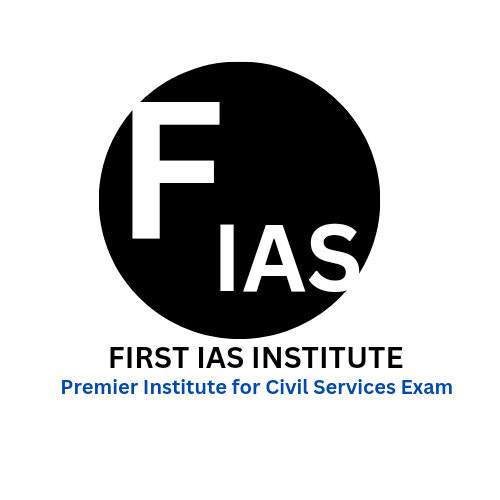UPSC Mains Answer Writing Tips to Score More Marks
The UPSC Civil Services Examination is one of the toughest exams in India, requiring a well-structured preparation strategy. While the Prelims test factual knowledge, the Mains examination evaluates a candidate's analytical ability, clarity of thought, and writing skills. Given the descriptive nature of the Mains exam, mastering answer writing is crucial for securing higher marks. Below are some expert tips to help you improve your answer writing and boost your score in the UPSC Mains.
Join WhatsApp community for Free Notifications, Updates, Study Material, Mock Tests, Internship Updates, and Current Affairs - CLICK HERE TO JOIN
1. Understand the UPSC Mains Pattern
Before diving into answer writing, it is essential to understand the pattern of the UPSC Mains examination. The Mains consists of nine papers:
- Paper A: Indian Language (Qualifying)
- Paper B: English (Qualifying)
- Essay
- General Studies I, II, III, and IV
- Two Optional Subject Papers
Each paper requires a different approach to answer writing, making it imperative to tailor your responses accordingly.
2. Read the Question Carefully
One of the most common mistakes aspirants make is misinterpreting the question. UPSC questions are framed in a way that tests various cognitive abilities, including analysis, evaluation, and synthesis. Pay attention to directive words such as:
- Discuss: Provide both sides of an argument.
- Examine: Analyze in detail with examples.
- Critically analyze: Present both pros and cons before concluding.
- Elucidate: Explain with examples.
Understanding the directive word ensures that your answer aligns with the examiner’s expectations.
To Enroll in FIRST IAS INSTITUTE - Click Here
3. Structure Your Answers Well
A well-structured answer is more likely to fetch higher marks. Follow this basic structure:
- Introduction: Briefly introduce the topic, define key terms, or provide relevant data.
- Body: Address the core demand of the question with multiple perspectives.
- Conclusion: Provide a balanced viewpoint or suggest a way forward.
Using subheadings and bullet points can improve readability and help you present your arguments in a logical manner.
4. Stick to the Word Limit and Be Concise
Each question in the UPSC Mains comes with a specified word limit, typically 150-250 words. Exceeding the limit may result in incomplete answers due to time constraints. Focus on writing concise yet impactful responses by eliminating redundant words and staying to the point.
5. Use Simple and Effective Language
Examiners appreciate clarity over complexity. Avoid using jargon or overly technical terms unless absolutely necessary. Write in simple, grammatically correct English to convey your ideas effectively.
Join WhatsApp community for Free Notifications, Updates, Study Material, Mock Tests, Internship Updates, and Current Affairs - CLICK HERE TO JOIN
6. Incorporate Data, Facts, and Examples
Citing relevant data, government reports, and current affairs can enhance the credibility of your answers. Some useful sources include:
- Economic Survey
- NITI Aayog Reports
- Census Data
- Budget Documents
Using real-life examples and case studies strengthens your arguments and makes your answers more compelling.
7. Develop a Multi-Dimensional Approach
UPSC expects aspirants to present holistic answers. To achieve this:
- Address issues from social, political, economic, and environmental perspectives.
- Incorporate constitutional provisions, Supreme Court judgments, and international conventions where relevant.
- Include relevant schemes, policies, and recent developments.
A multi-dimensional approach demonstrates a well-rounded understanding of the topic.
8. Draw Diagrams, Flowcharts, and Maps
Visual representation of information makes your answers stand out. Where applicable, include:
- Flowcharts: To explain processes or relationships.
- Diagrams: To illustrate concepts.
- Maps: For geography-related questions.
These elements make your answer more engaging and easier to comprehend.
9. Focus on Ethical and Balanced Views
In papers like Ethics (GS Paper IV), always provide a balanced perspective. Address ethical dilemmas using real-world examples, philosophical viewpoints, and personal experiences. In controversial topics, maintain neutrality and avoid extreme opinions.
10. Time Management and Practice
Given the vast syllabus, completing all answers within the allotted time is challenging. To improve speed and efficiency:
- Practice answer writing daily.
- Set a timer while writing to simulate the exam environment.
- Attempt previous years’ question papers and mock tests.
Regular practice helps you develop a natural flow in writing and manage time effectively.
To Enroll in FIRST IAS INSTITUTE - Click Here
11. Review and Self-Assessment
After writing an answer, review it critically:
- Is the introduction engaging and relevant?
- Does the body cover all aspects of the question?
- Is the conclusion well-balanced?
- Have you adhered to the word limit?
Self-assessment helps in identifying gaps and improving writing style over time.
12. Get Feedback from Mentors and Peers
Sometimes, self-evaluation may not be enough. Seek feedback from experienced mentors, teachers, or fellow aspirants. Their insights can help you refine your answers and eliminate common errors.
13. Revise and Maintain Notes
Maintaining short notes on key topics, including definitions, data points, and case studies, aids quick revision before the exam. This ensures that relevant information is readily available while writing answers.
Join WhatsApp community for Free Notifications, Updates, Study Material, Mock Tests, Internship Updates, and Current Affairs - CLICK HERE TO JOIN
14. Maintain Consistency in Handwriting
While handwriting is not a primary evaluation criterion, neat and legible writing improves readability. Avoid unnecessary overwriting or messy corrections. If your handwriting is not very clear, practice writing neatly under timed conditions.
15. Stay Calm and Confident During the Exam
Lastly, maintaining composure during the exam is vital. Stress can impact your ability to recall information and structure answers effectively. Take deep breaths, read questions carefully, and allocate time wisely to ensure maximum attemptability.
To Enroll in FIRST IAS INSTITUTE - Click Here
Conclusion
Answer writing is an art that can be mastered with consistent effort and practice. By following these UPSC Mains answer writing tips, you can enhance the quality of your responses and improve your overall score. Remember, the key lies in clarity, structure, and balance. Stay disciplined, practice regularly, and approach the examination with confidence. Best of luck!


 firstiasofficial@gmail.com
firstiasofficial@gmail.com
Leave a Comment